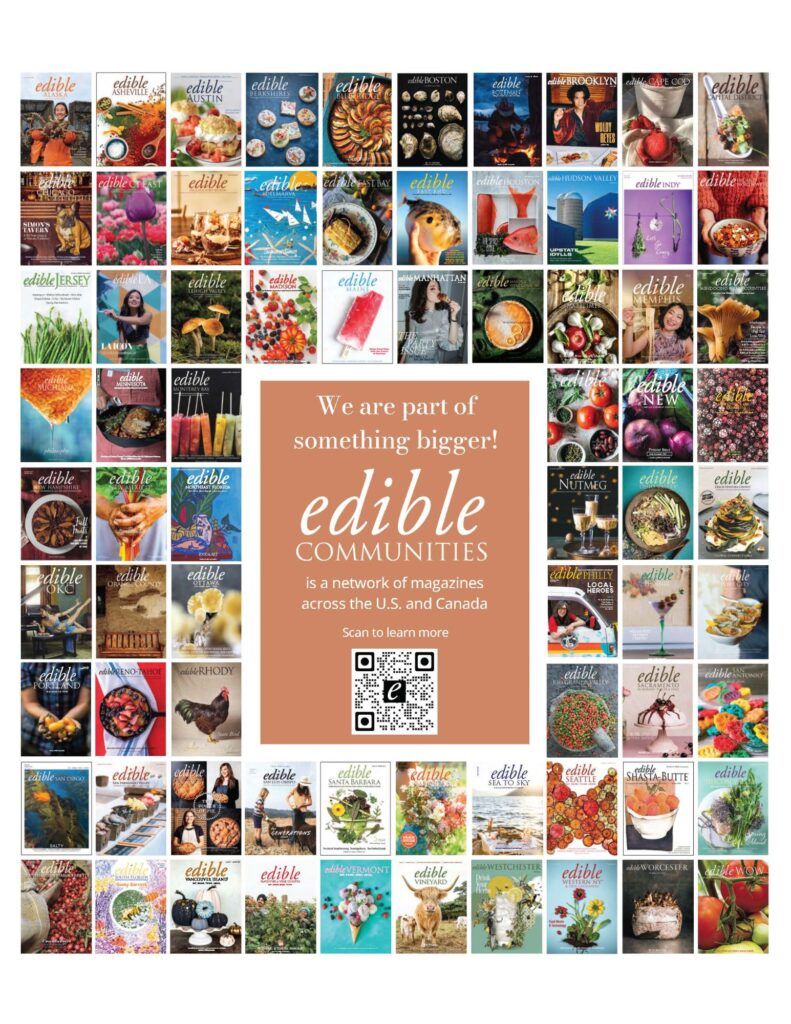
Perspective: Rooted in Resilience
Perspective by Maria De Lourdes Orozco Ramirez
In this Perspective piece, Maria De Lourdes Orozco Ramirez, 26, retraces her childhood in Mexico and explores her journey to working directly with underserved and socially disadvantaged farmers in SLO County.
I’m the daughter of farm workers, and the lineage of farmers in my family goes way back. You could say it’s in my DNA — the love for farming has been passed down through generations. Working with San Luis Obispo County farmers to help them access resources that support their farms was a natural career choice for me.
Born in a small rancho near Guadalajara in the state of Jalisco, I was introduced to rural life at an early age. My family, both past and present, has raised livestock, grown maize and practiced subsistence farming. One of my earliest memories is the short walk to my grandparents’ farm, where we gathered fresh vegetables, dairy and honey to enjoy. Our lives were deeply intertwined with the land and the bounty it provided.
This connection to the land is something my family has carried through generations. My grandfather, now 101 years old, still shares stories of his time working in California’s Central Valley under the Bracero Program. Between 1942 and 1964, this program employed over five million Mexican farm and railroad workers, and the money he earned helped him buy land back in Mexico for his own farm. Listening to his stories gave me an early understanding of the harsh realities of farm labor, but also the resilience and perseverance that farming requires. His experience serves as a powerful link between past and present, showing how generations of farm workers like him have shaped agriculture in the Americas.
When I was four, my family moved to Los Angeles. The move was a culture shock — life in a bustling city was vastly different from the quiet, rural, but close-knit rancho we had known. My parents didn’t speak English, which made adjusting to our new life even harder. For years, my father worked as a horse trainer at Santa Anita Race Track, but eventually, we relocated to Shandon and then Atascadero, seeking a lifestyle more in tune with our roots. Despite the move, we faced challenges, especially as my parents navigated the labor sector in a country where they didn’t speak the language. My siblings and I often had to translate for them, a responsibility that shaped me in profound ways.
As I grew older and began considering my own career, I knew I wanted to do something related to food. Food has always been central to my life. Initially, I thought I might become a chef, but I realized I could make a broader impact by addressing the barriers faced by BIPOC (Black, Indigenous, People of Color) farmers.


My educational journey took me to UC Davis, where I earned a bachelor’s degree in Sustainable Agriculture and Food Systems, and later to Cornell University, where I received a master’s degree in Global Development. These experiences deepened my commitment to working with underserved and socially disadvantaged farmers.
During my time as a bilingual Community Educator for the UC Small Farms Network, I supported farmers dealing with the challenges of extreme weather and growing non-commodity specialty crops. I saw firsthand the struggles many farmers experience, particularly those who are undocumented and don’t speak English. It became clear to me that the lack of Spanish-speaking community educators and technical assistance providers meant many Latino farmers were missing out on opportunities for support.
Farming is time-consuming, and small and diversified farmers often don’t have the resources to navigate the complex systems for grants and financial assistance. However, there are numerous financial and educational opportunities available to them. My goal is to connect these farmers with the resources they need and help them prepare for unforeseen challenges, like natural disasters, so they can keep their farms going for generations.
Currently, I am the Education and Mentorship Coordinator at the UC Organic Agriculture Institute, where I help facilitate the TOPP Mentorship and Demonstration Network program. These initiatives compensate experienced organic farmers who serve as mentors to aspiring organic farmers or those in transition. Recognizing the wealth of knowledge that farmers hold, these programs create a network of farmer-to-farmer knowledge exchange that is critical to maintaining sustainable practices and promoting environmental stewardship.

It’s vital that small, diversified family farms exist and thrive—they are the backbone of our local economy. These farmers provide us with culturally relevant crops, implement environmentally friendly practices, and contribute to the ecology of our food system. Many of the growers I work with sell at multiple farmers markets across California, and they know their customers. They listen to them and understand what they need and want to put on their tables.
I have immense respect for the work these small BIPOC farmers are doing. I know it’s not easy. Every time I see them with their families, and the children are translating for them, I see myself, and I’m reminded why I do this work. It’s about opportunity. Helping these farmers not only strengthens our food system but also makes our communities and economy more resilient.



